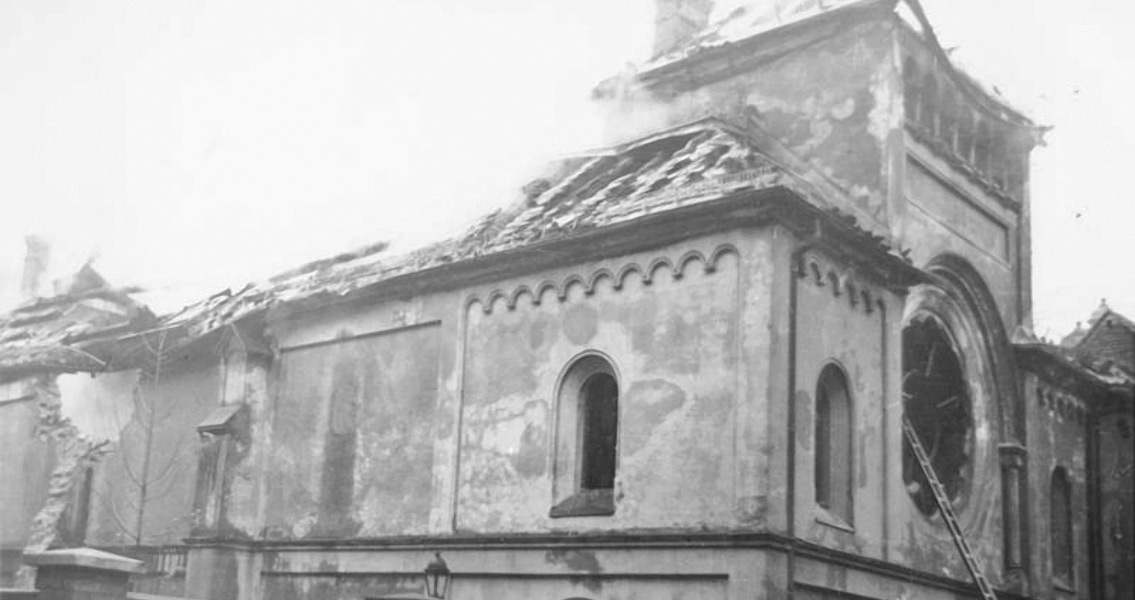<![CDATA[Terrifying violence descended on Germany on the night of 9th-10th November, 1938, as the Nazis launched a nationwide series of attacks on Jewish people and property. The evening has now come to be known by a variety of different names - the November Pogroms, the Night of Broken Glass, or Kristallnacht (Night of Crystal). The last name refers to the effects of countless smashed windows, with broken glass littering the streets of German cities. Violence continued throughout the day on 10th November, and in some regions of the country lasted for several days after that. Figures for the extent of the devastation wrought in Nazi Germany are unclear, but it is estimated that around a hundred Jews were killed across Germany and its recently acquired territories of Austria and the Sudetenland, with 7,500 Jewish businesses damaged and over a thousand Synagogues torched. The immediate pretext of Kristallnacht was the killing in Paris of the German diplomat Ernst vom Rath by the Jewish student Herschel Grynszpan. Grynszpan's family had recently been forcibly deported from Hanover to Poland, with the family business and property confiscated by the Nazi Government. Herschel Grynszpan went to the embassy looking to kill the German ambassador to France, but settled on the only German official he could find. Joseph Goebbels jumped on the assassination as an excuse to launch a violent retaliation against Germany's Jewish population. The murder in Paris was interpreted and portrayed by the German propaganda master as part of an international, global Jewish conspiracy - with the attack on the diplomatic official an attack on the Reich itself. Following conversations with Hitler, Goebbels ordered Nazi storm troopers to launch a wave of attacks on Germany's Jewish population. Great care was taken to ensure that the violence of Kristallnacht appeared as an unplanned outburst, with the troopers ordered to disguise their actions as 'spontaneous demonstrations'. Just before midnight on the 9th, a telegram was sent by Gestapo chief Heinrich Muller to all of Germany's police units. It's content makes clear that Kristallnacht was sanctioned by Nazi authorities. "in shortest order, actions against Jews and especially their synagogues will take place in all of Germany. These are not to be interfered with." Indeed, Nazi police arrested Jewish victims of the night's violence - with some 30,000 Jewish men detained and many sent to concentration camps. A few days after Kristallnacht a meeting among the hierarchy of the Nazi party declared that Germany's Jews were responsible for the violence. A billion reichsmark fine was placed on the country's Jews for the slaying of vom Rath, while 6 million marks in insurance payments to Jewish businesses for the damage caused on Kristallnacht were confiscated by the Nazi government. Kristallnacht was both a culmination of the increasing antisemitic legislation that had been implemented in Germany following the rise of the Nazi party in 1933, and the beginnings of a tragic new phase in the government's campaign against the Jewish population. On 15th November, 1938, Jews were banned from Germany's schools, and by the end of the year they had been completely banned from any participation in public life. Thousands of Jews fled Germany in the wake of Kristallnacht, sensing just how perilous their futures were in the Nazi state. Several countries broke off diplomatic relations with Germany in respone, but ultimately the Nazis suffered no real repercussions for the night of 9th November, seemingly laying the grounds for the horrifying holocaust which followed.]]>
Jews Massacred On Kristallnacht
